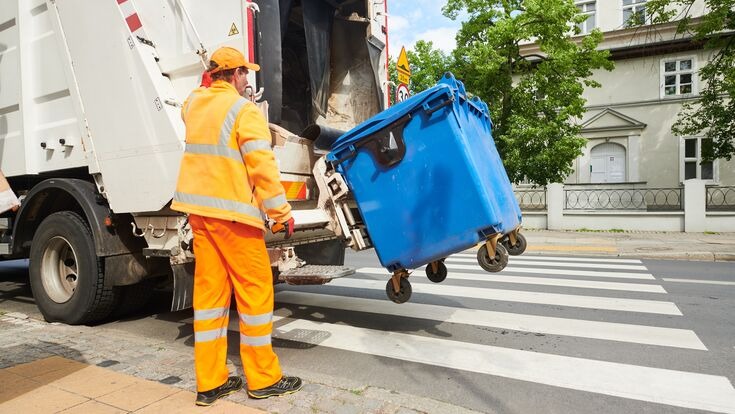What does a garbage collector do?

A garbage collector is responsible for collecting and managing household waste in a designated area. They follow specific routes, usually in residential neighborhoods, to gather garbage and recyclables. Using specialized trucks equipped with mechanisms to lift and compact trash, they make the waste collection process more efficient. Besides physically collecting waste, garbage collectors are also responsible for maintaining a regular schedule, covering all assigned areas, and following safety protocols. Their role plays a crucial part in keeping communities clean and promoting environmental sustainability by ensuring proper waste disposal.
Duties and Responsibilities of a Garbage Collector:
- Scheduled Waste Collection: Follow assigned routes to collect household garbage, recycling, and yard waste according to a set schedule. Operate collection vehicles like garbage trucks to efficiently pick up and compact waste.
- Loading and Unloading: Physically load and unload waste bins and recyclables onto collection vehicles, ensuring proper handling to prevent spills and maintain cleanliness.
- Sorting and Recycling: Sort recyclable materials from non-recyclables, facilitating recycling by ensuring materials like paper, glass, and plastic are properly handled.
- Safety Procedures: Follow safety protocols, including the use of personal protective equipment and safe operation of vehicles.
- Communication and Documentation: Work closely with team members and supervisors, keeping records of collection volumes and reporting any issues or incidents.
- Equipment Maintenance: Perform routine inspections and maintenance on collection vehicles and equipment, reporting any mechanical problems.
- Customer Interaction: Address questions or concerns from residents and businesses during the collection process and educate the community about proper waste disposal and recycling.
- Route Efficiency: Plan routes that maximize efficiency to ensure timely waste collection and reduce fuel consumption.
- Environmental Compliance: Follow environmental regulations governing waste disposal and ensure waste is properly disposed of at designated facilities.
Types of Garbage Collectors:
- Residential Garbage Collectors: Focus on collecting household waste in residential areas, often using smaller vehicles to navigate neighborhood streets.
- Commercial Garbage Collectors: Serve businesses and commercial establishments, handling larger volumes of waste with larger collection vehicles.
- Recycling Collectors: Specialize in collecting and transporting recyclable materials like paper, plastic, and metal, supporting recycling efforts.
- Yard Waste Collectors: Collect yard waste such as leaves and grass clippings, often using separate vehicles for composting.
- Bulk Item Collectors: Handle oversized items like furniture and appliances that do not fit into standard waste containers.
- Hazardous Waste Collectors: Trained to handle and dispose of hazardous materials following strict safety protocols.
- Electronic Waste Collectors: Collect electronic devices like old computers and TVs, ensuring they are recycled or disposed of in line with environmental regulations.
- Construction Debris Collectors: Specialize in waste from construction and demolition, including materials like concrete and wood.
- Medical Waste Collectors: Handle the safe disposal of medical waste from healthcare facilities, following stringent guidelines to prevent contamination.
- Organic Waste Collectors: Collect food scraps and other organic materials, supporting composting initiatives to reduce landfill waste.
Information provided by CareerOnlines, LLC and other sources.
Sections of this page includes information from the O*NET 29.0 Database by the U.S. Department of Labor, Employment and Training Administration (USDOL/ETA). Used under the CC BY 4.0 license.
CareerOnlines, LLC has modified all or some of this information. USDOL/ETA has not approved, endorsed, or tested these modifications.